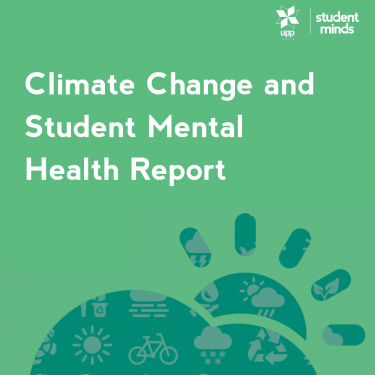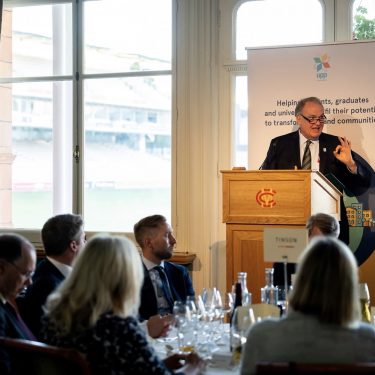Over 40 leading universities pledge commitment to local communities
Following the launch of Truly Civic: Strengthening the connection between universities and their places (the final report from the UPP Foundation Civic University Commission) there are now over 40 vice-chancellors who have committed their universities to develop civic university agreements – one of the report’s key recommendations.
This page will be continually updated to reflect the latest number of signatories. We would be delighted if your university would like to be added to this list – contact us to join the #trulycivic movement.

Civic University Agreements – Statement of Intent
Universities are proud of the places and communities we share. They have shaped us, and we have shaped them. These may be towns, cities or even whole regions; often rural. Some universities have been civic institutions for over a century, others are civic institutions that have only relatively recently become universities. But, as a sector, we are united by our commitment to delivering opportunity and prosperity to the people and communities with whom we share our place.
Universities have long worked to support social mobility; drive innovation and economic growth; and support the cultural strength of our communities. However, the profound economic and social changes that are happening across Britain today has made the civic role of universities even more vital. The time is right, therefore, for us to focus and strengthen our efforts. Universities must examine, with purpose and with rigour, how we should fulfil our civic missions in the future.
That is why we fully support the recommendation in the UPP Foundation Civic University Commission to establish a new approach – a Civic University Agreement.
As signatories of this statement we are pledging our universities to develop Civic University Agreements. The agreements will better align our priorities with those of our local partners. Alongside schools, further education colleges, local authorities, charities, the NHS, civil society and businesses large and small, we want to make sure our place thrives in the coming decades.
This is not how government has recently thought about universities. As the cost of paying for a degree has shifted towards students, so too have policy, regulation and incentives increasingly emphasised the private benefit of a degree over universities’ public good. Whichever way universities are funded, we believe the public and private benefits from higher education must be developed together.
The long-term funding settlement for our sector will inevitably impact on what we can do and the extent to which we can do it. This includes our civic role. However, within that constraint this statement is a commitment from us, as autonomous institutions, to continue to serve the educational, economic and societal interests of our communities and our place. We will continue to embed our civic responsibilities into the core of what we do; be this research, education or knowledge exchange. We hope that funders recognise and continue to support this.
We will publish our Civic University Agreements publicly. As we develop them, we will be driven by the following principles:
1. As place-based institutions we are committed to attaching a high-priority to the economic, social, environmental, and cultural life of our local communities.
2. Our civic role will be informed by an evidence-based analysis of the needs of our place, developed collaboratively with local partners and informed by the voice of our local community.
3. We will collaborate with other universities and anchor institutions and form partnerships to overcome the challenges facing our local communities.
4. With our partners, we will be clear about what we do and how we measure it, so we can say with confidence what we have achieved – and how we might do better in the future.
As Universities, we are responsible to our students and our staff, but we are also responsible to the places around us. Our Civic University Agreements will be an opportunity to set out clearly, coherent and creatively how we will fulfil that responsibility.
List of signatories
Professor Colin Bailey, President and Principal, Queen Mary University of London
Professor Liz Barnes, Vice-Chancellor and Chief Executive, Staffordshire University
Sir David Bell, Vice-Chancellor and Chief Executive, University of Sunderland
Professor Dame Janet Beer, Vice-Chancellor, University of Liverpool
Professor Nishan Canagarajah, President and Vice-Chancellor, University of Leicester
Professor George Boyne, Principal and Vice-Chancellor, University of Aberdeen
Professor Hugh Brady, Vice-Chancellor and President, University of Bristol
Professor Amanda J. Broderick, Vice-Chancellor and President, University of East London
Professor Alec Cameron, Vice-Chancellor and Chief Executive, Aston University
Professor Andy Collop, Interim Vice-Chancellor, De Montfort University
Professor Stuart Croft, Vice-Chancellor and President, University of Warwick
Professor Paul Croney, Vice-Chancellor and Chief Executive, Teesside University
Professor Chris Day, Vice-Chancellor and President, Newcastle University
Professor Lynn Dobbs, Vice-Chancellor and Chief Executive, London Metropolitan University
Professor Sir David Eastwood, Vice-Chancellor, University of Birmingham
Professor Graham Galbraith, Vice-Chancellor, University of Portsmouth
Professor Pamela Gillies CBE, Principal and Vice-Chancellor, Glasgow Caledonian University
Professor David M. A. Green CBE, Vice-Chancellor and Chief Executive, University of Worcester
Professor Sir Chris Husbands, Vice-Chancellor, Sheffield Hallam University
Professor Koen Lamberts, President and Vice-Chancellor, University of Sheffield
Professor David Latchman CBE, Master, Birkbeck University of London
Professor John Latham, Vice-Chancellor, Coventry University
Professor Geoff Layer, Vice-Chancellor, University of Wolverhampton
Professor Susan Lea, Vice-Chancellor, University of Hull
Professor Jane Longmore, Vice-Chancellor, University of Chichester
Patrick Loughrey, Warden, Goldsmiths, University of London
Professor Helen Marshall, Vice-Chancellor, University of Salford
Professor Quintin McKellar CBE, Vice-Chancellor, University of Hertfordshire
Professor Trevor McMillan, Vice-Chancellor, Keele University
Professor Kathryn Mitchell, Vice-Chancellor and Chief Executive, University of Derby
Professor Sir Anton Muscatelli, Principal and Vice-Chancellor, University of Glasgow
Professor Paddy Nixon, Vice-Chancellor and President, Ulster University
Professor Nick Petford, Vice-Chancellor, University of Northampton
Professor Judith Petts CBE, Vice-Chancellor, University of Plymouth
Mr Andrew Rhodes, Registrar and Chief Operating Officer, Swansea University
Professor Colin Riordan, President and Vice-Chancellor, Cardiff University
Professor Mark E. Smith, Vice-Chancellor, Lancaster University
Professor Sir Steve Smith, Vice-Chancellor and Chief Executive, University of Exeter
Professor Steven Spier, Vice-Chancellor, Kingston University
Professor Mary Stuart, Vice-Chancellor, University of Lincoln
Professor Adam Tickell, Vice-Chancellor, University of Sussex
Professor Saul Tendler, Acting Vice-Chancellor and President, University of York
Professor Rob Warner, Vice-Chancellor and Chief Executive, Plymouth Marjon University
Professor Shearer West, Vice-Chancellor and President, University of Nottingham
Professor Steven West CBE, Vice-Chancellor, President and Chief Executive Officer,
University of the West of England
Professor Tim Wheeler, Vice-Chancellor and Principal, University of Chester








